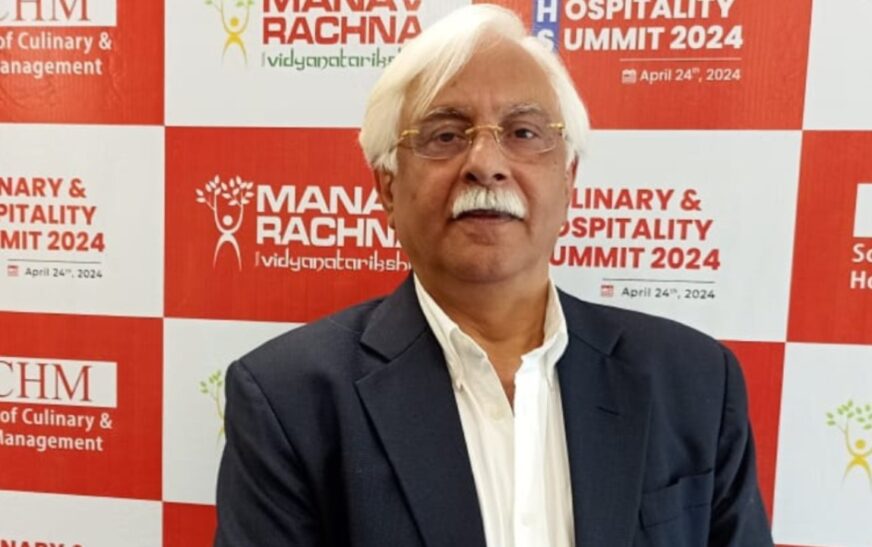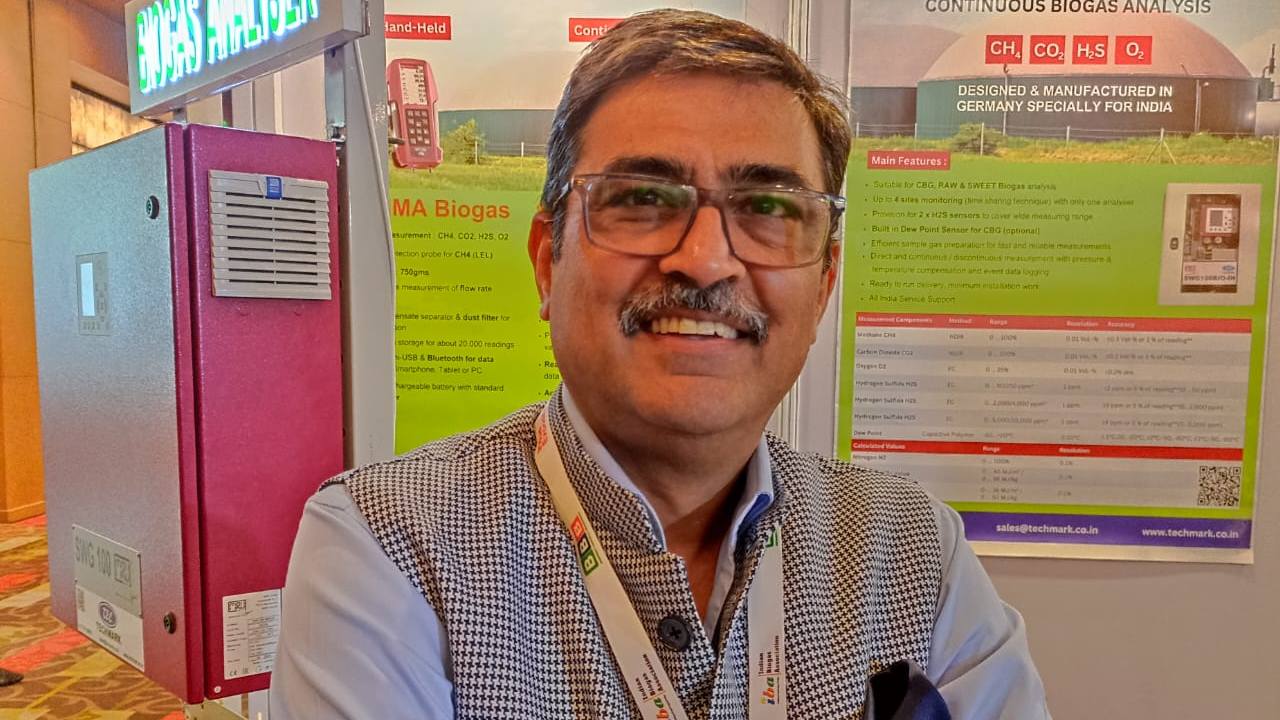In the realm of hospitality, Rattan Keswani stands as a luminary, a maestro whose career reads like a captivating novel, brimming with tales of innovation, excellence, and unwavering dedication. With a career spanning over four decades, Rattan has etched his mark across the industry landscape, leaving an indelible legacy of brilliance and ingenuity.
A connoisseur of hospitality, Rattan’s journey commenced in 1981, a time when the industry was ripe with opportunities and challenges alike. From the corridors of Oberoi Hotels and Resorts, where his journey first took flight, to the pinnacle of success as President at Trident Hotels, Rattan has navigated through various roles and responsibilities with aplomb, each step imbued with a relentless pursuit of excellence.
However, Rattan’s narrative transcends the boardrooms and corridors of power; he is, above all, a storyteller. With his book “Check-In, Never Check-Out,” he invites readers into the inner sanctum of his experiences, offering a glimpse into the inner workings of the hospitality world. But it is not only through the written word that Rattan weaves his magic; you’ll find yourself ensnared in a mesmerizing tale of trials, triumphs, and the art of hospitality.
Throughout his illustrious career, Rattan has lent his expertise to a plethora of esteemed hotel groups, from Sheraton to Intercontinental, Hilton to Lemon Tree. Each partnership has been a testament to his visionary leadership and unwavering commitment to excellence, shaping the industry landscape in profound ways.
As the Ex-Deputy Managing Director at Lemon Tree Hotels Ltd, Rattan continues to chart new territories, his passion for hospitality undimmed by the passage of time. With his keen intellect, boundless creativity, and innate ability to connect with people, he remains a guiding light for aspiring hoteliers and a beacon of inspiration for the industry at large.
In the tapestry of hospitality, Rattan Keswani’s name shines brightly, a testament to his unparalleled contributions and unwavering commitment to excellence. His story is not just one of success; it is a testament to the transformative power of passion, perseverance, and the relentless pursuit of greatness.
In an electrifying tête-à-tête with The Interview World amidst the fervor of the Culinary and Hospitality Summit 2024, orchestrated by the prestigious School of Culinary and Hotel Management at Manav Rachna University, Rattan Keswani fervently highlights the seismic shift witnessed in the Indian hospitality sphere over the past forty years. With unyielding fervor, he emphasizes the pivotal role played by top-tier Indian hotels in championing indigenous cuisines, boldly calls upon the government to enact supportive policies conducive to industry expansion, and articulates an impassioned vision for the future trajectory of hospitality. Brace yourselves for the riveting revelations from his profound discourse.
Q: How has your extensive four-decade journey in the hospitality industry, particularly within India, shaped your perspective on its evolution?
A: The hospitality industry has undergone a remarkable evolution over the past four decades, with the last two decades experiencing unprecedented advancements, particularly during my tenure within it.
This evolution has heralded a significant diversification, extending beyond the confines of traditional five-star hotels. Gone are the days when such establishments monopolized the market, leaving little room for alternatives. Today, the landscape boasts a plethora of choices in accommodations, dining options, career paths, event management, and architectural design.
Moreover, the industry’s scope now extends to encompass various sectors beyond hospitality. Many non-hospitality companies, realizing the value of customer-centric service, actively seek out hospitality graduates and professionals with a few years of experience under their belt.
Remarkably, these individuals are often recruited without the need for formal interviews. Their track record in reputable companies serves as a testament to their comprehensive skill set, including adeptness in communication, customer service, handling pressure, basic numeracy, and technological proficiency.
This shift presents a double-edged sword: while indicative of the industry’s growth and demand for talent, it also poses the risk of individuals becoming commodified resources, undervalued, and under-recognized.
However, the landscape has undergone a significant transformation, driven by factors such as population growth, increased earning capacities, and the recent accessibility of internal tourism infrastructure, facilitated by developments like expanded airport networks and improved roadways.
Barring unforeseen global disruptions, the forthcoming decade promises a continued trajectory of growth akin to the curve of a hockey stick. This growth encompasses a myriad of opportunities, increased profitability, diverse offerings, and unique experiences, rendering it an auspicious era for the industry.
Q: Balancing Indian culinary heritage with global cuisines in international hotel chains in India: How to maintain authenticity while appealing globally?
A: Until two decades ago, international chains introduced what they believed their customers required, adhering to their established methods. However, today, both local and international chains alike are embracing localization in all aspects, including experiences, cuisine, and more.
This shift is remarkable and occurring at an exponential rate. Moreover, they are embracing this change rather than resisting it. Consequently, opportunities for skilled chefs and artisans are abundant. For instance, one can find an international hotel in Surat offering exceptional Gujarati cuisine, while a Starwood or Accord Hotels in Chennai serves exquisite regional dishes.
This initiative stems from their realization that customers, whether local or international, seek authentic experiences, presented hygienically. By meticulously selecting regional dishes, they not only attract domestic clientele but also cater to the tastes of international visitors.
Contrary to the assertion made, they are actively engaged in this process and are not prioritizing their cuisine exclusively.
Q: How can the government enact policies or regulations to accelerate growth within this industry and convey a clear message from a policy standpoint?
A: The industry has long lamented the lack of infrastructure, including airports and modern trains. The government has made strides in addressing these issues. However, what remains a sticking point for both the industry and the government is the failure to grant the hospitality sector industry status. This designation would unlock a plethora of opportunities for the industry.
Unlike their counterparts in comparable sectors, hospitality businesses are consistently overlooked when it comes to industry status. This oversight has fuelled frustration and discord between the industry and government for many years.
Taxation policies also require re-evaluation. There persists a misguided notion within government circles that hospitality and travel are synonymous with luxury and excess, thus warranting higher taxation. However, the reality is that a significant portion of the middle class patronizes these establishments, including two-, three-, and four-star hotels and restaurants.
There has been a surge in the opening of such establishments in recent years. Penalizing these businesses with excessive taxes under the assumption of elitism is unjustifiable, particularly considering the broadening customer base.
Such taxation not only burdens the consumer but also inflates the overall cost of hospitality services, hindering industry growth unnecessarily. Rationalizing tax policies is imperative.
Additionally, local issues, such as the persistent taxi problem in Goa, demand attention. Such issues not only inconvenience customers but also tarnish the destination’s reputation.
State governments must take proactive measures to address these concerns, recognizing the broader societal benefits of a thriving hospitality and travel sector. These sectors not only generate employment but also contribute to GDP growth, promote cultural exchange, and foster local economic development.
By prioritizing the needs of citizens over political expediency, policymakers can unlock the full potential of the hospitality and travel industries, thereby benefiting society as a whole.
Q: How do you envision the landscape of the hospitality industry evolving over the next decade?
A: No, I prefer not to speculate. To do so would require expertise in prophecy. However, our industry is undergoing significant global evolution. This transformation occurs approximately every two to three years. The onset of COVID prompted profound shifts in perspectives, values, and optimization strategies, as well as novel approaches to creativity. Moreover, the rise of artificial intelligence, virtual reality, augmented reality, and machine learning has further propelled these changes.
While we may not possess comprehensive knowledge about these advancements, their impact on our lives will be substantial and swift, ushering in multiple paradigm shifts. Consequently, attempting to forecast developments a decade ahead is exceedingly challenging. Instead, I suggest focusing on the immediate future. Let’s embrace the next two years and relish in the opportunities they bring, much like enjoying the rain.









1 Comment
Good – I should certainly pronounce, impressed with your web site. I had no trouble navigating through all tabs and related info ended up being truly simple to do to access. I recently found what I hoped for before you know it at all. Quite unusual. Is likely to appreciate it for those who add forums or something, website theme . a tones way for your customer to communicate. Nice task..
Comments are closed.